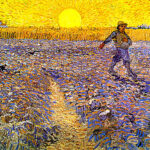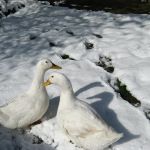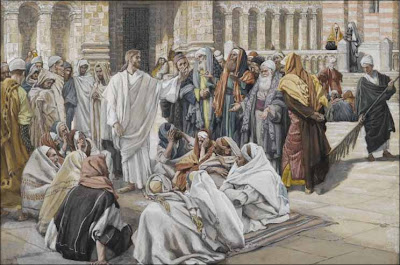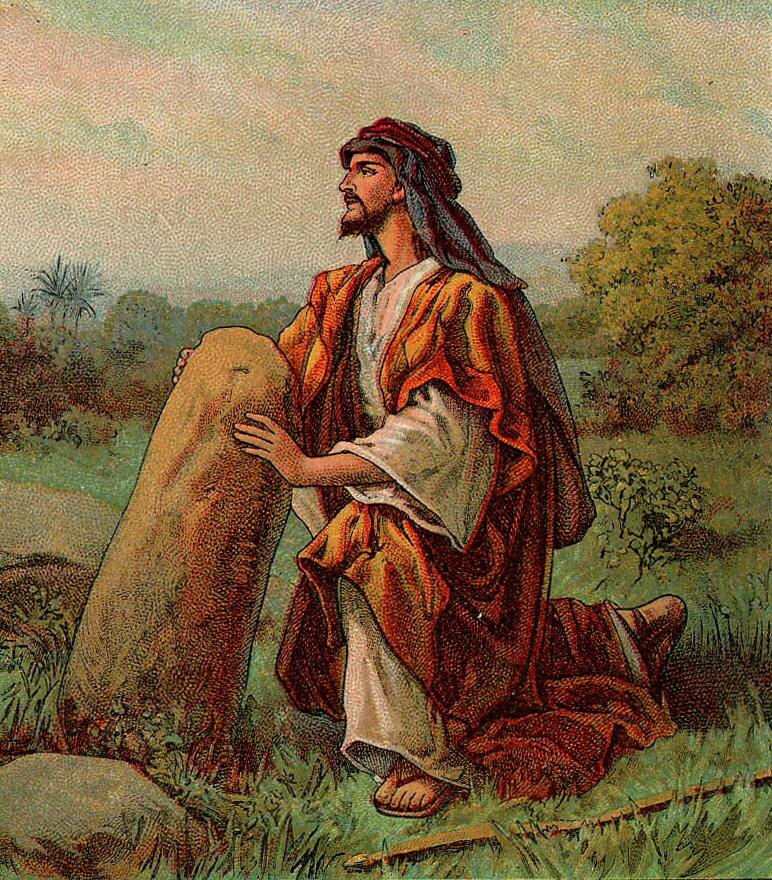 |
| Van Gogh The Sower |
There is nothing more powerful than a story–than a parable. It grows with the reader, and we continue filling in the gaps with out own life experience.
This, one of Jesus’s five major discourses is called The Parabolic Discourse, because of its collection of parables. The English word parable comes from the Greek parabole, which means “a placing beside” and thus is a comparison or illustration. The synoptic Gospels have 30 parables, John none at all.
This is a rich and fabulous parable.
Matthew 13
1 That same day Jesus went out of the house and sat by the lake. 2 Such large crowds gathered around him that he got into a boat and sat in it, while all the people stood on the shore.
Sitting was the normal position for teachers. His parables use a narrative analogy to teach a moral or spiritual lesson. They produce different results–hiding truth from those not eager or ready for it, communicating truth to the disciples.
3 Then he told them many things in parables, saying: “A farmer went out to sow his seed. 4 As he was scattering the seed, some fell along the path, and the birds came and ate it up. 5 Some fell on rocky places, where it did not have much soil. It sprang up quickly, because the soil was shallow. 6But when the sun came up, the plants were scorched, and they withered because they had no root. 7 Other seed fell among thorns, which grew up and choked the plants. 8 Still other seed fell on good soil, where it produced a crop—a hundred, sixty or thirty times what was sown. 9 Whoever has ears, let them hear.”
One of Jesus’s favourite sources of parables was the natural world, which he created.
though hearing, they do not hear or understand.
you will be ever seeing but never perceiving.
15 For this people’s heart has become calloused;
they hardly hear with their ears,
and they have closed their eyes.
Otherwise they might see with their eyes,
hear with their ears,
understand with their hearts
and turn, and I would heal them.’
A hard heart will stand in the way of seeing and understanding spiritual truth.
Jesus seldom interpreted his parables, but here he does so, because his disciples asked him to!! We see the power of the request again.
Typical agricultural yields were fivefold to fifteen fold, with a tenfold return considered a good yield.






